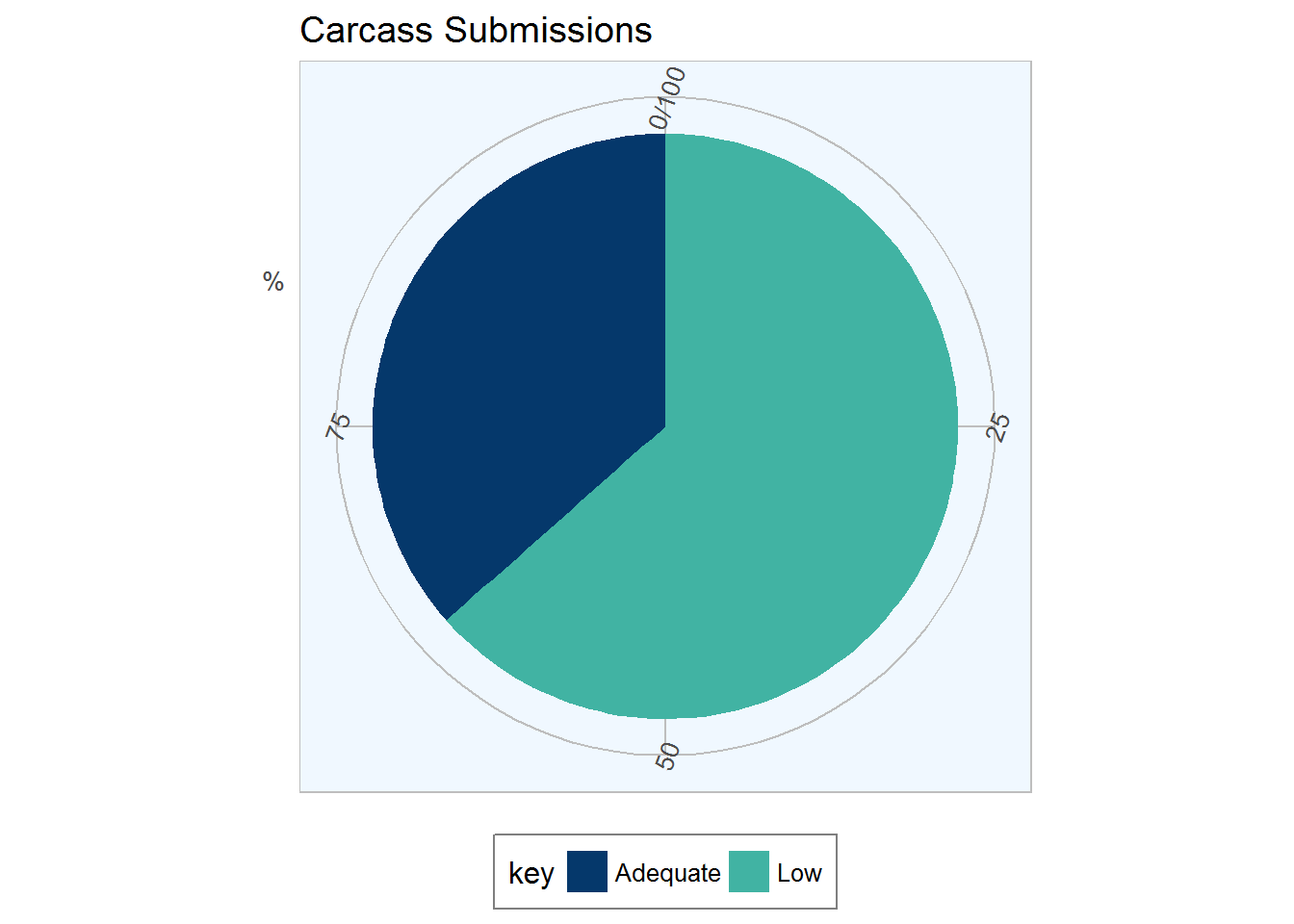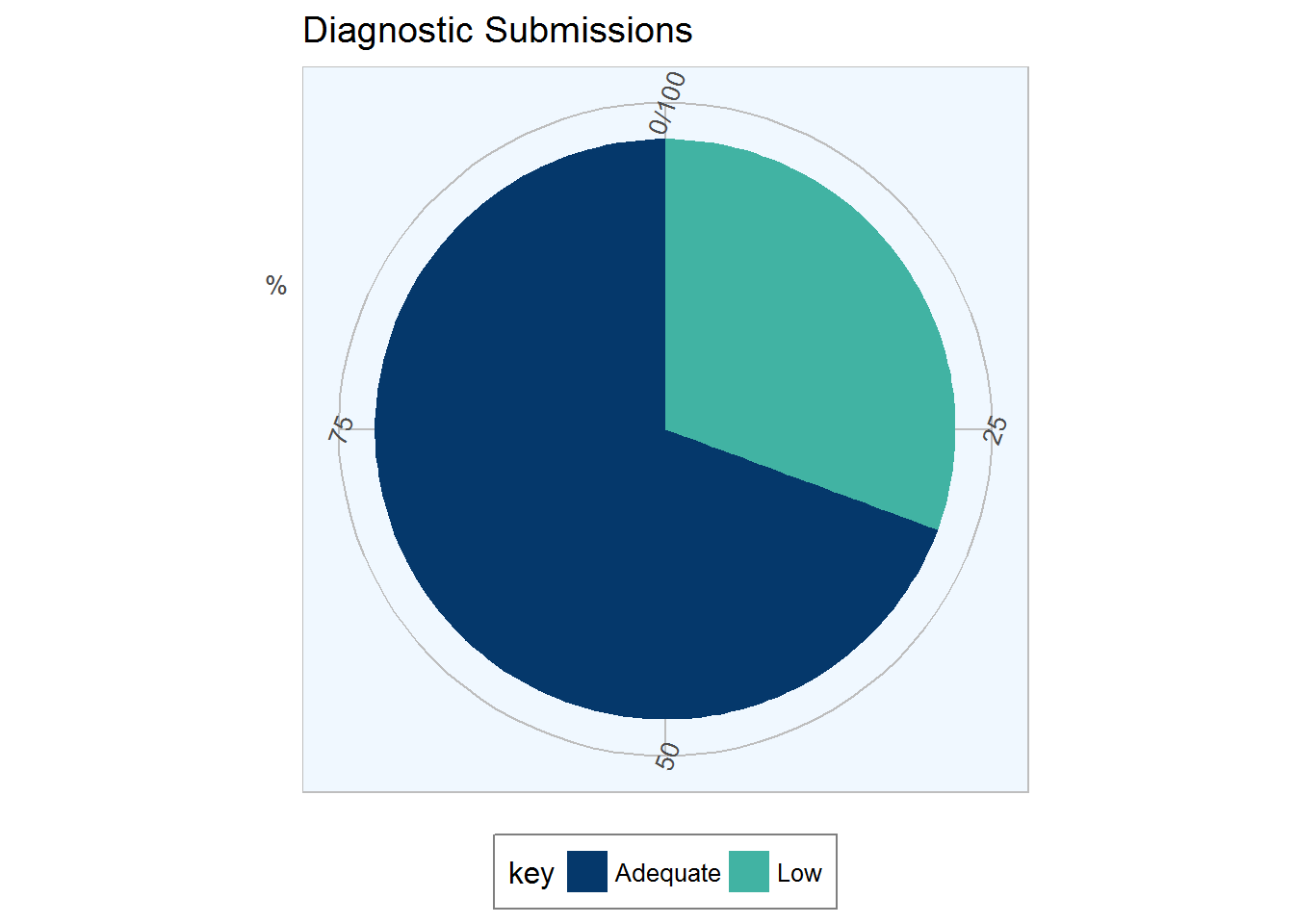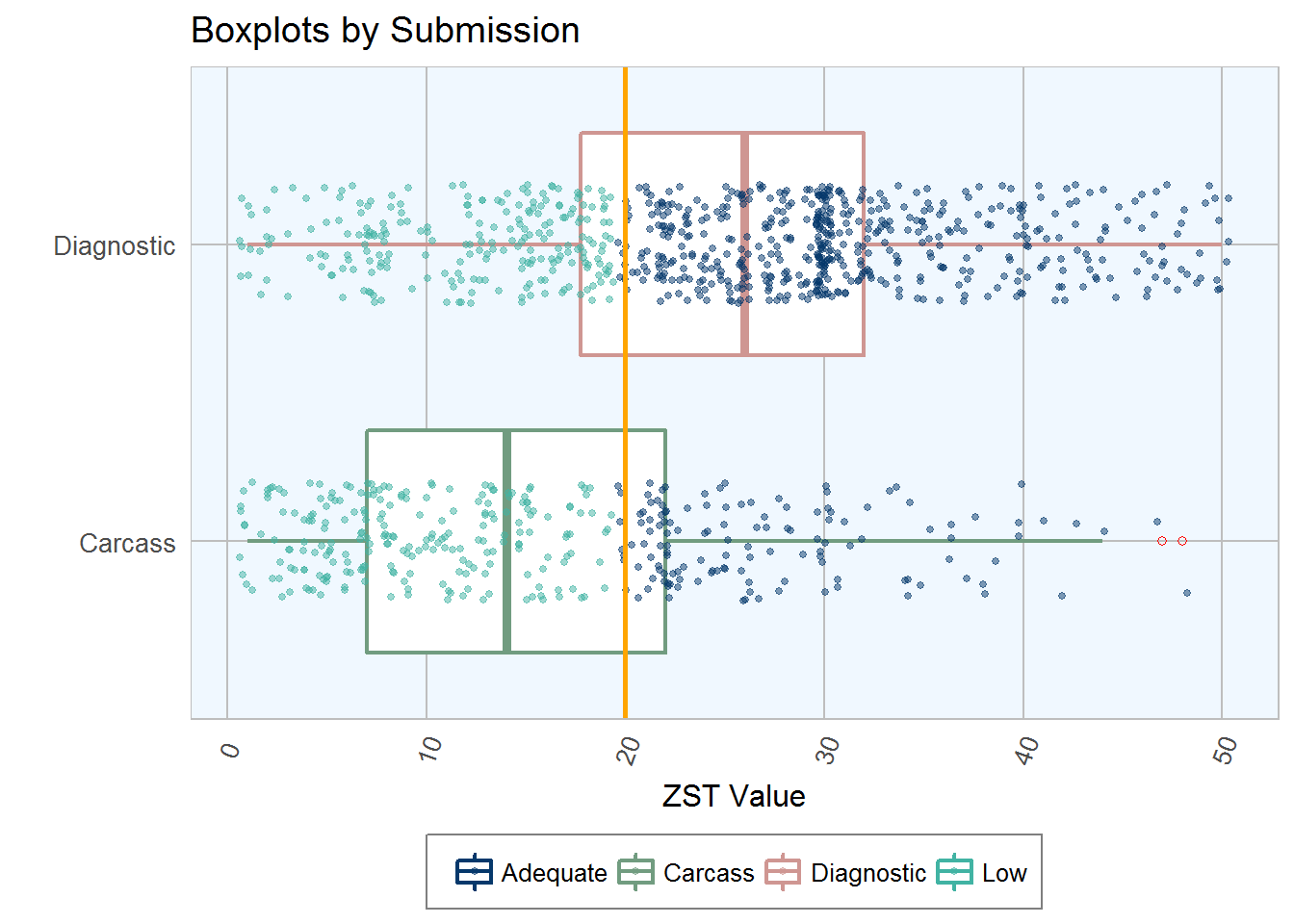| 1118 blood samples were submitted for the Zinc Sulphate Turbidity Test in 2017 .
The zinc sulphate turbidity test is an indirect measurement of the passive transfer of immunoglobulins via the colostrum from the dam to the neonate. The adequate delivery of good quality colostrum is an important part of calf management. This transfer of immunity provides protection to neonates from common infectious diseases that contribute to illness and death.
| Submission | Level | Count | Mean | Percentage |
|---|---|---|---|---|
| Carcass | Adequate | 133 | 27 | 37 |
| Carcass | Low | 231 | 9 | 63 |
| Diagnostic | Adequate | 523 | 32 | 69 |
| Diagnostic | Low | 231 | 12 | 31 |

Figure 7.1: Results of ZST from submitted bovine calf carcasses

Figure 7.2: Results of ZST from submitted bovine calf blood samples
Farms should have measures in place to ensure that all calves receive adequate colostrum early enough for absorption to take place (ideally in the first six to twelve hours). Inadequate amounts of colostrum ingested, poor quality colostrum and delayed colostrum feeding can all lead to failure of passive transfer of immunity.

Figure 7.3: Results of ZST. Adequate colostral immunity is defined as greater than or equal to 20 units (orange line)






